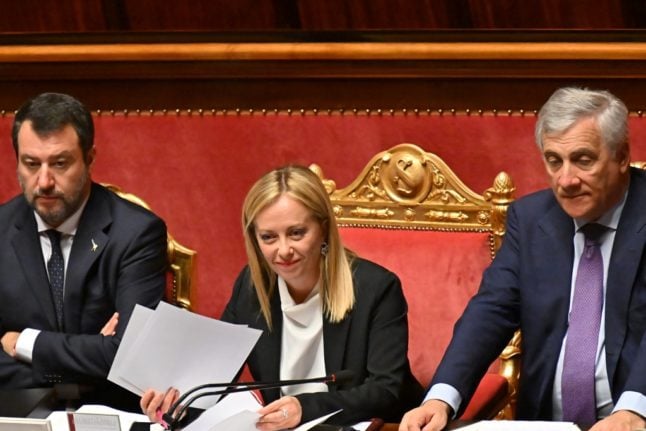In particular, the Commission criticised Rome’s controversial push to increase the limit for cash payments, saying it was contrary to efforts to fight tax evasion, but ultimately passed the budget despite its reservations.
“Overall, the Commission is of the opinion that the Draft Budgetary Plan for Italy is in line with the fiscal guidance” provided by Brussels in July, the commission wrote in its opinion.
READ ALSO: Italian government seeks to raise cash payment limit ‘to help the poor’
Prime Minister Giorgia Meloni called the opinion a “positive assessment that validates the government’s good work”.
The commission cited new measures that will increase the deficit, but noted that the bulk were aimed at temporarily mitigating the effects of inflation on households and businesses.
Still, it warned, any extension of these measures, or new ones to come, would contribute to “an increase in the projected government deficit and debt in 2023”.
The macroeconomic assumptions underpinning the budget were “plausible” for both this year and next, it added.
READ ALSO: What will Italy’s new budget law mean for you?
But Brussels said Rome had not yet made progress on tax reform, with a bill to reduce taxes on labour and increase efficiency in the tax system still to be approved by Parliament.
It also criticised the government’s proposed increase in the ceiling in cash payments in shops and businesses from 2,000 to 5,000 euros; the ability for merchants to refuse card payments under 60 euros; and a tax amnesty scheme for liabilities under 1,000 euros.
It noted that it had previously recommended that Italy fight tax evasion by strengthening e-payments and limiting the thresholds for cash payments.
READ ALSO: Why people in Italy might have to carry more cash from now on
The Bank of Italy has also criticised cash payments as aiding tax evasion, which costs Italy about 100 billion euros per year.
The draft budget, which puts aside more than 21 billion euros ($22.3 billion) in inflation-fighting measures for households and companies, must be approved by parliament before the end of the year.
Before coming to power in September, Meloni’s far-right Brothers of Italy party had promised sweeping tax cuts and more funds for pensioners and families, sparking concerns about the impact on Italy’s already colossal debt.
But Meloni, who has sought to present herself as a responsible leader at a time of global economic uncertainty, presented a budget experts said was broadly in line with that of the previous government under Mario Draghi.



 Please whitelist us to continue reading.
Please whitelist us to continue reading.
Member comments